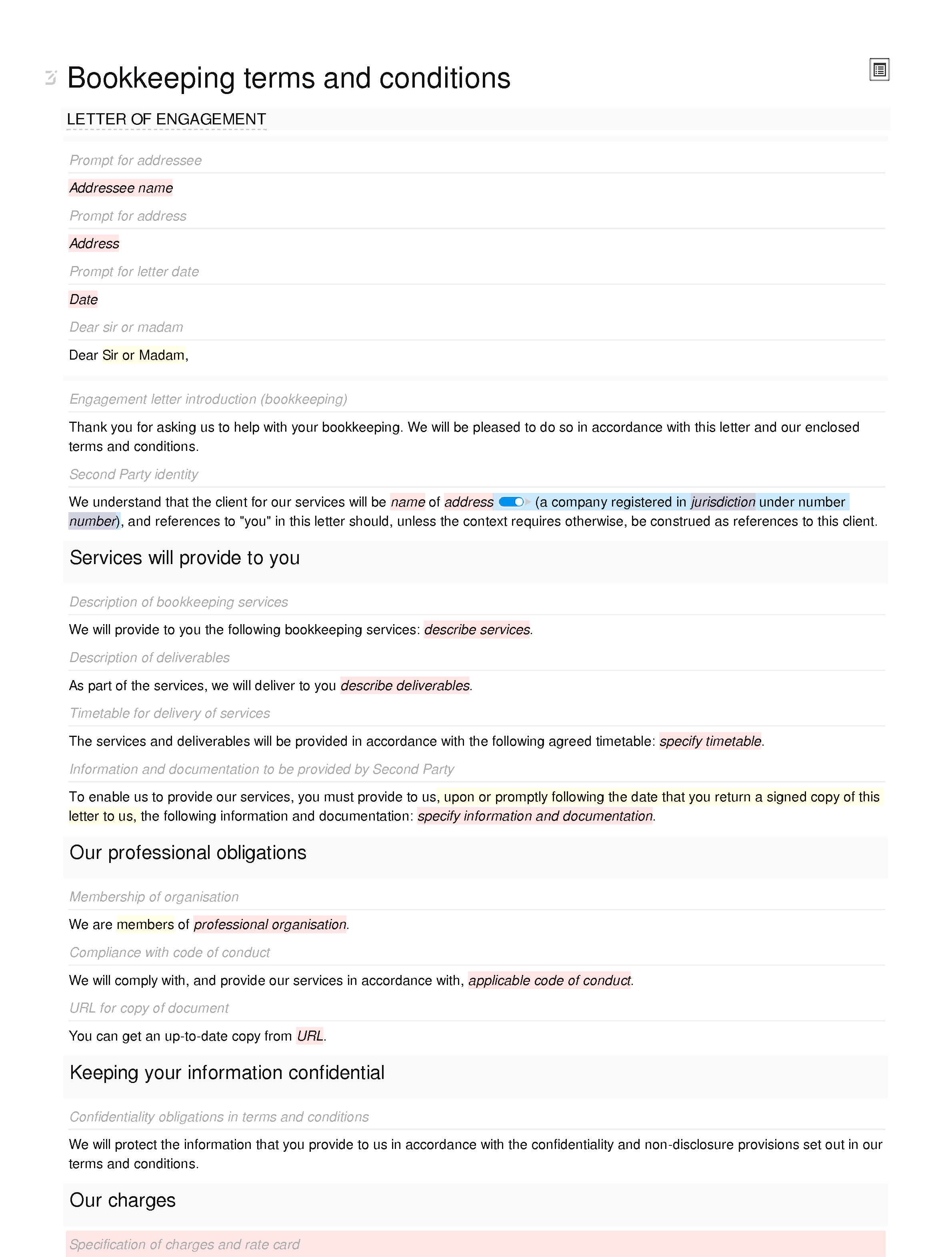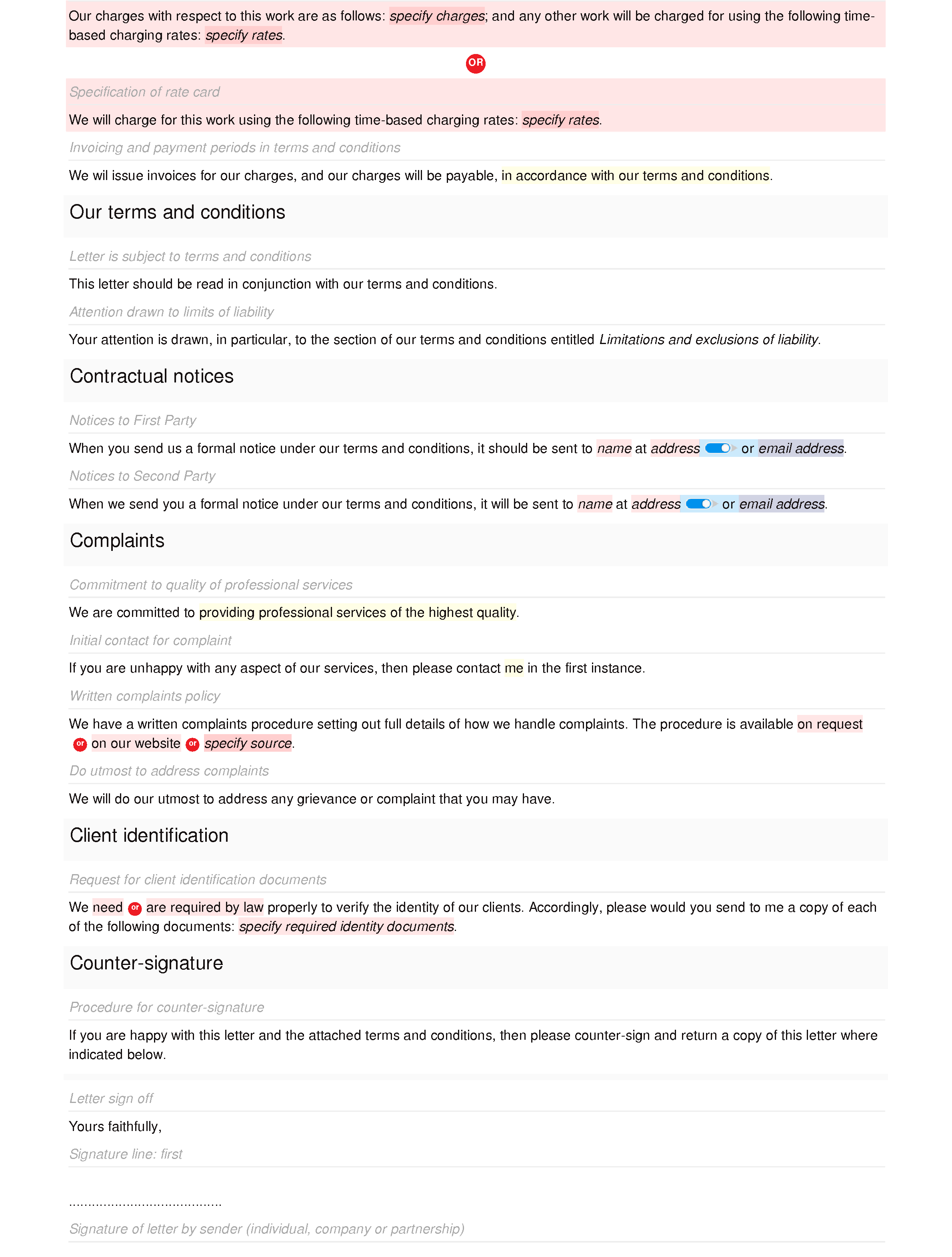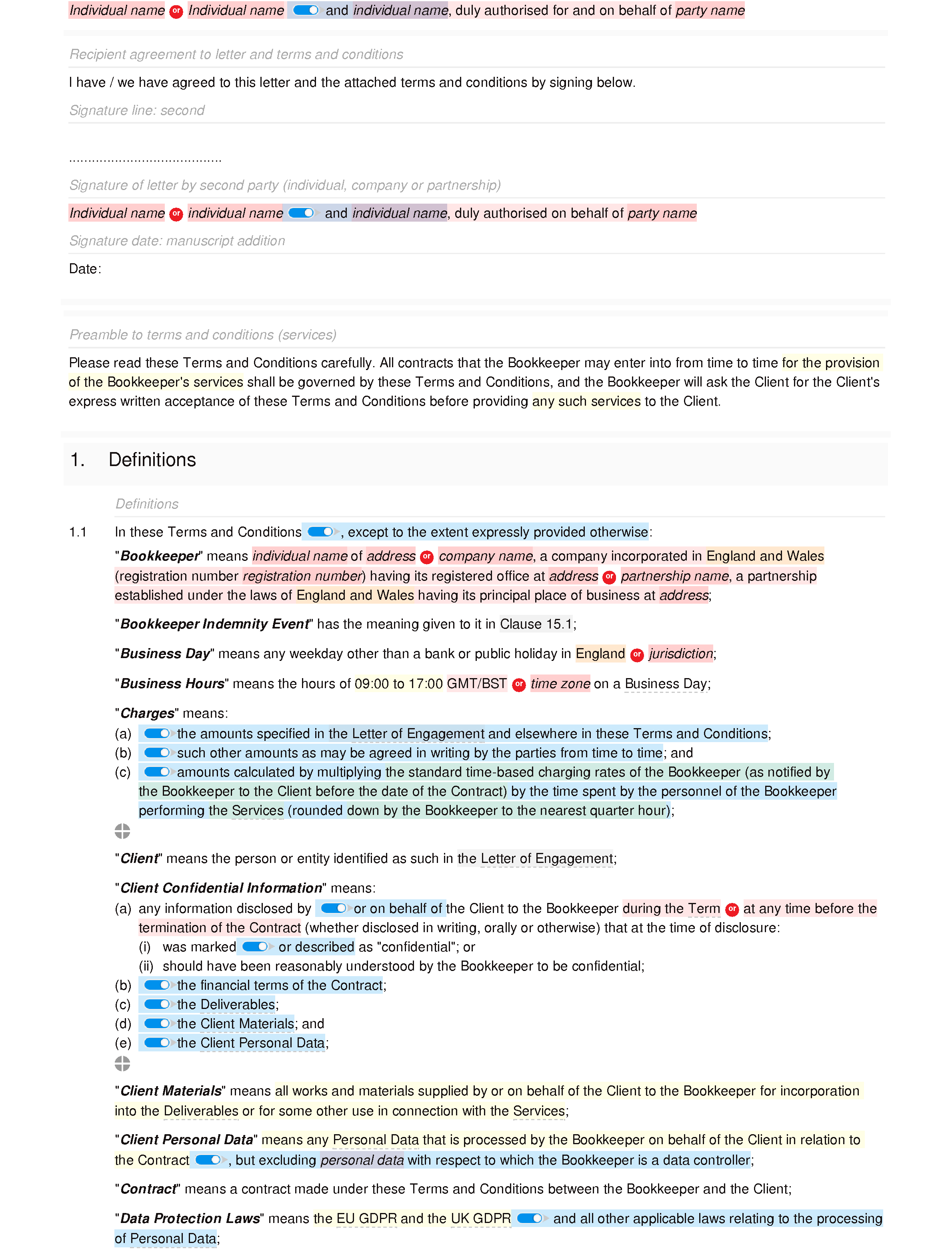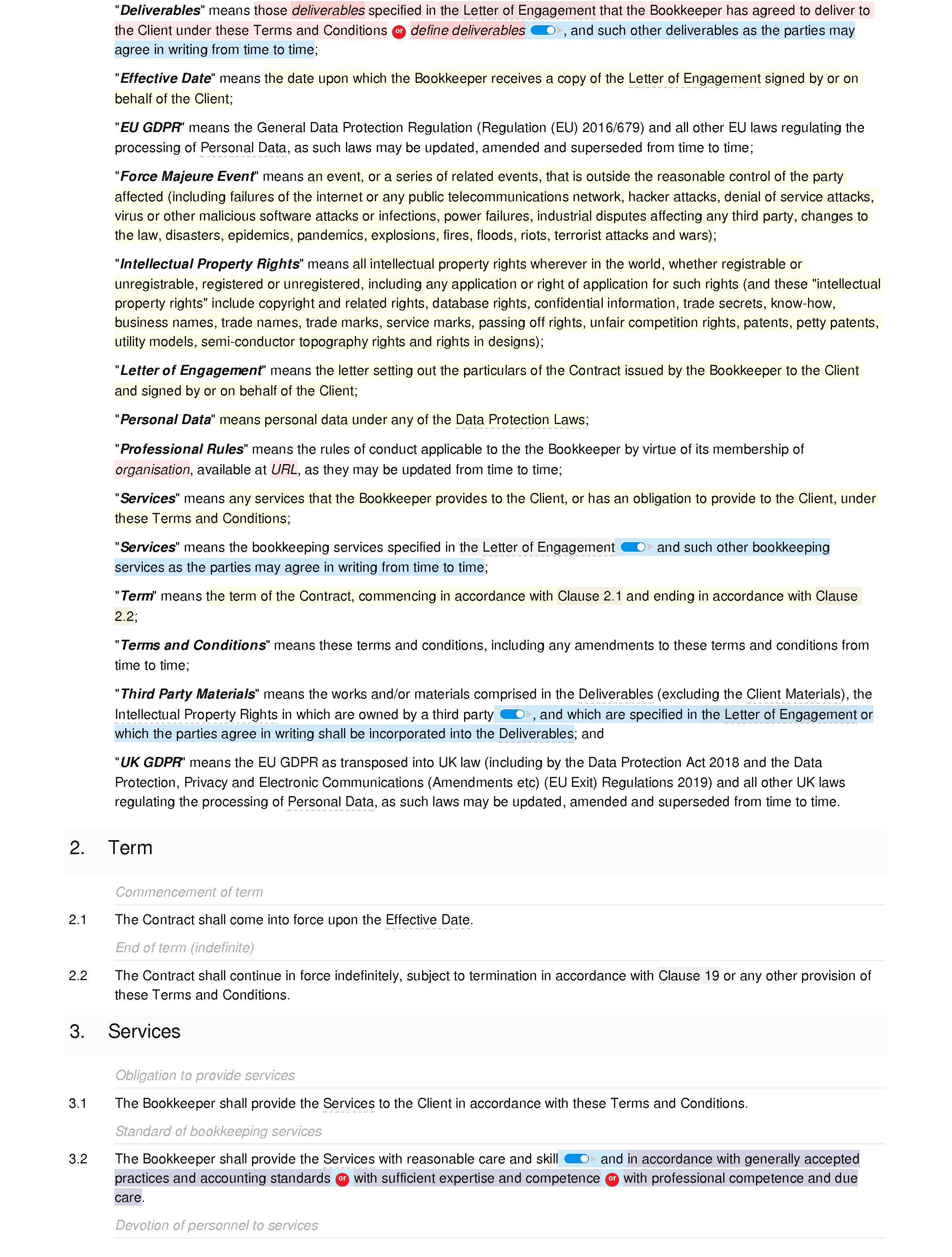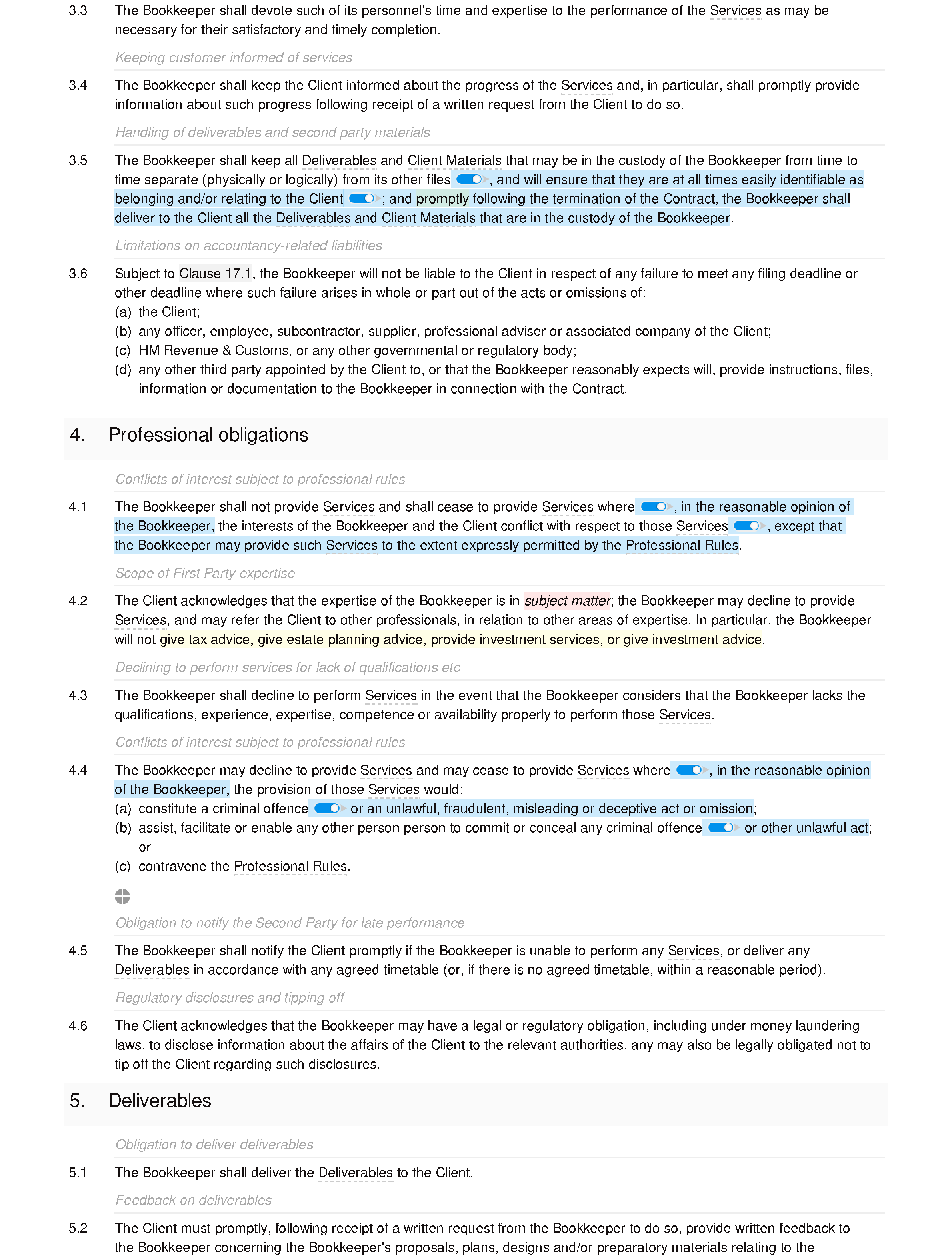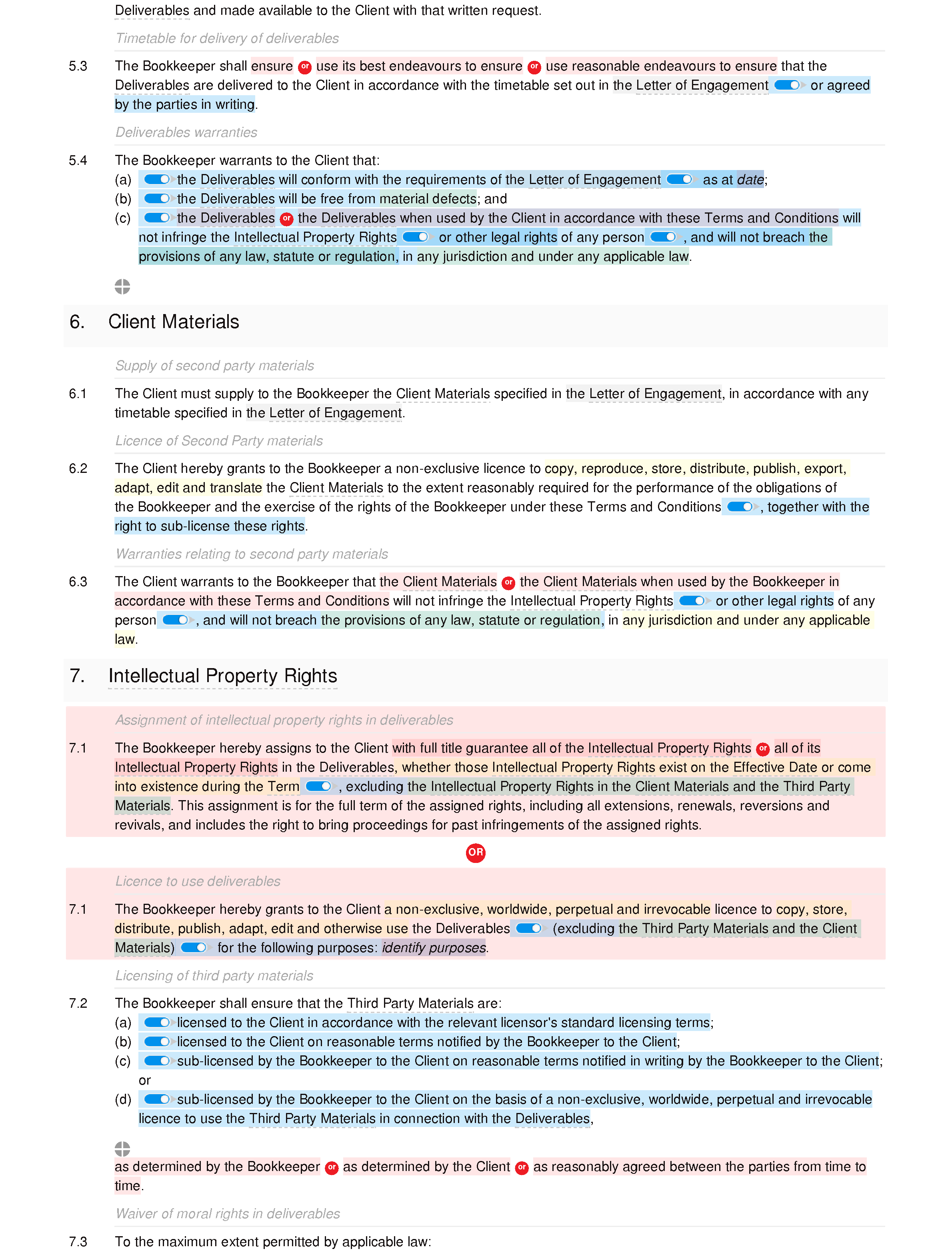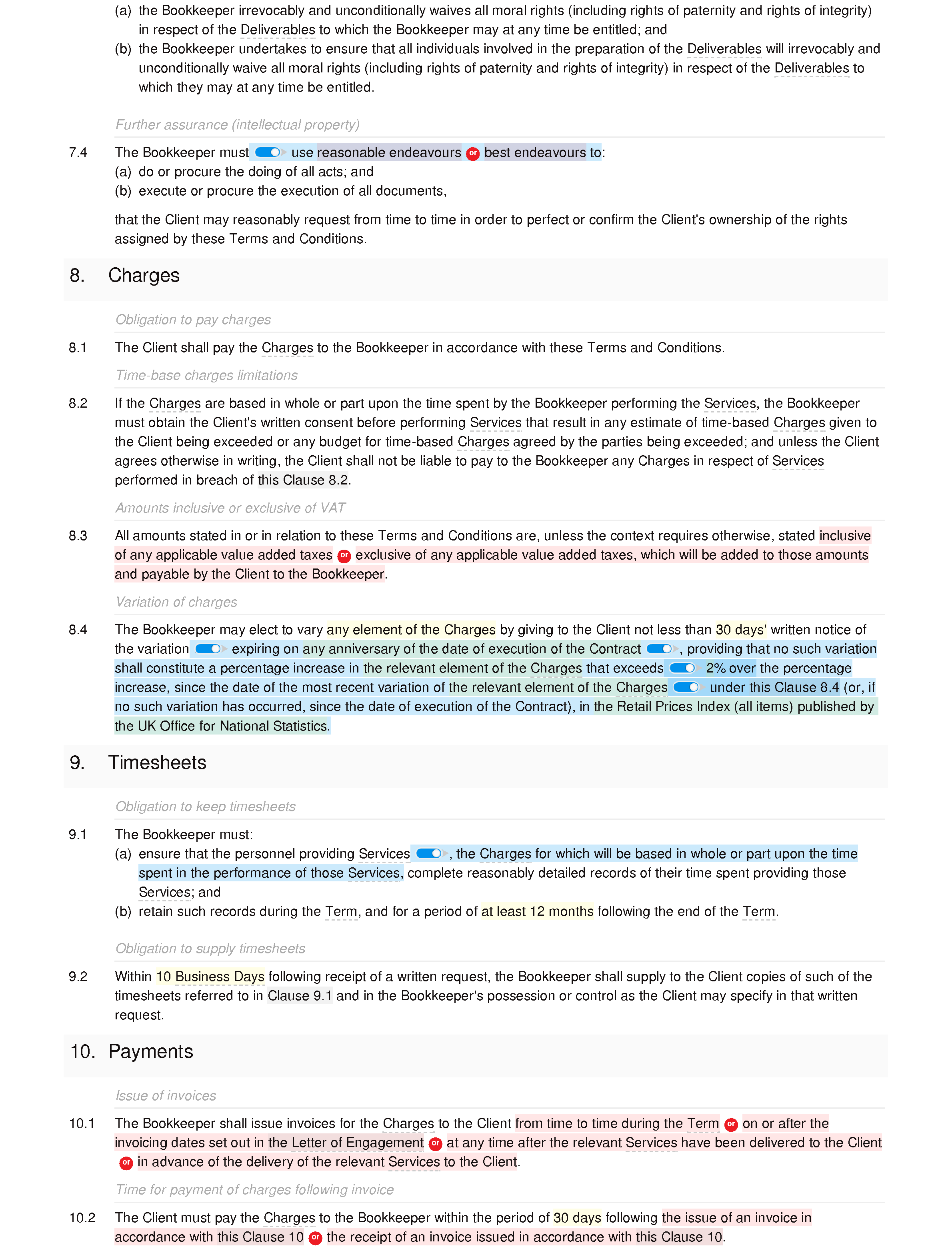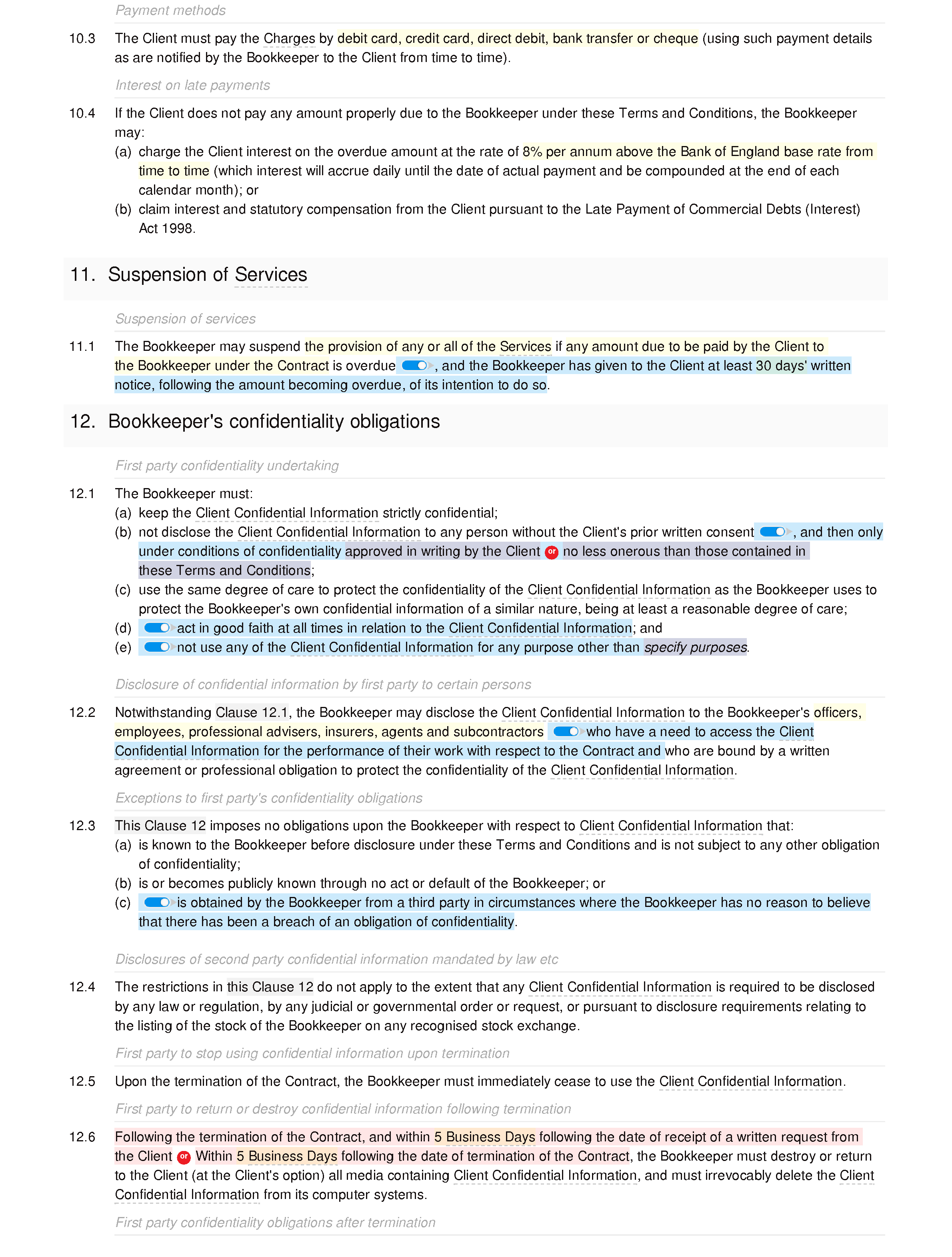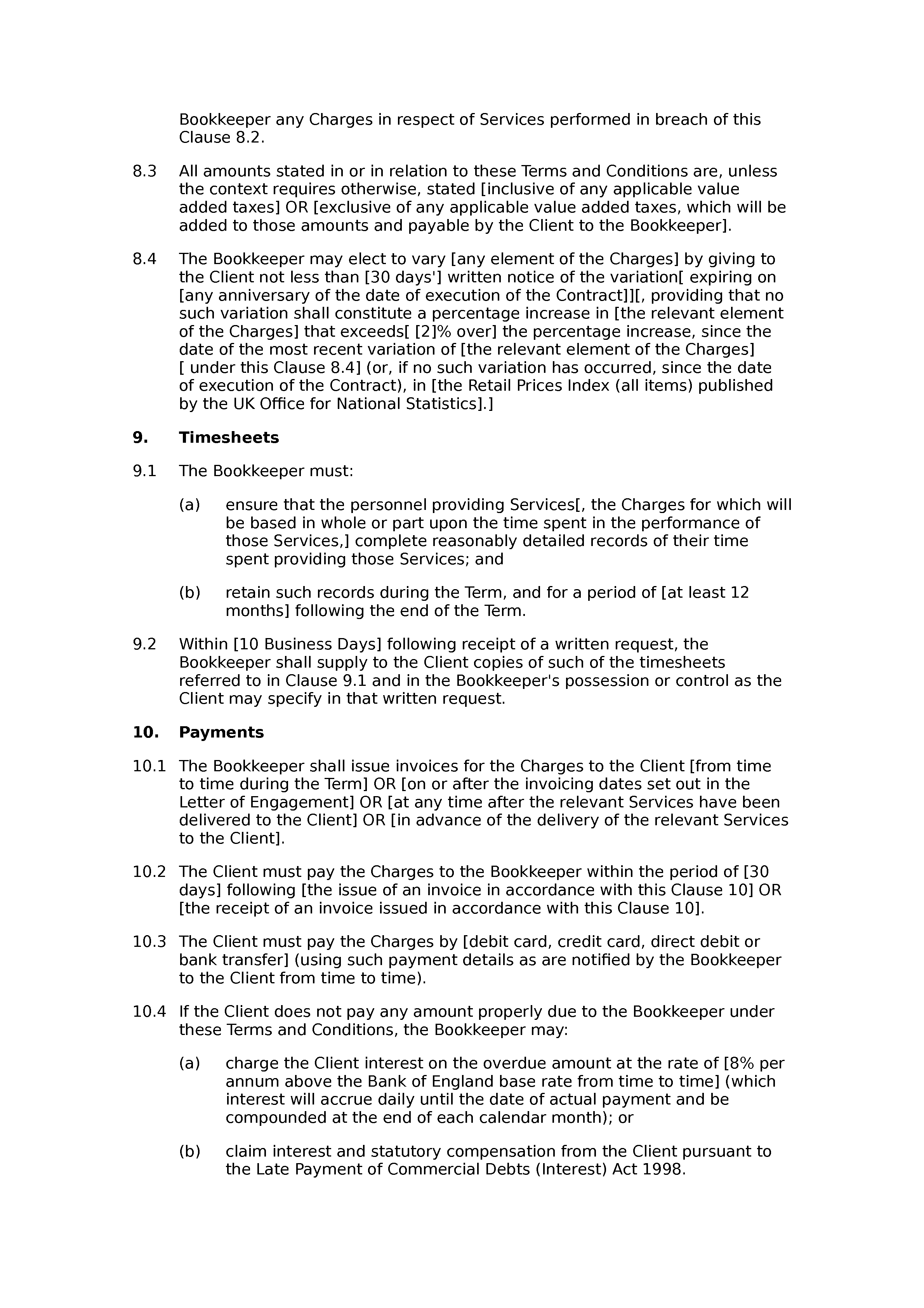Bookkeeping terms and conditions
These T&Cs are designed for a bookkeeping services business to use as its standard terms of trading.
The core provisions of the bookkeeping T&Cs cover the provision of services, the bookkeeper's professional obligations, the handling of client data and materials, the provision and licensing of any deliverables, intellectual property rights, charges, timesheets, payments, confidentiality, term and termination.
The bookkeeping T&Cs are accompanied by a template letter of engagement. Client-specific variables such as the scope of the services and agreed charges can be set out in this letter.
The T&Cs are, as at the date of drafting, broadly consistent with the codes of ethics and rules promulgated by the principal bookkeeping industry bodies in the UK, namely the Institute of Certified Bookkeepers (ICB), the International Association of Book-keepers (IAB) and the Association of Accounting Technicians (AAT). Of course, those bodies place many other obligations upon members which are not highlighted or referred to in these T&Cs.
These bookkeeping T&Cs are not suitable for use in relation to business-to-consumer (B2C) contracts.
The T&Cs include an optional data processing clause, designed to help the parties to comply with the GDPR.
Bookkeeping terms and conditions contents
- Definitions: definitions.
- Term: commencement of term; end of term (indefinite).
- Services: obligation to provide services; standard of bookkeeping services; devotion of personnel to services; keeping customer informed of services; handling of deliverables and second party materials; limitations on accountancy-related liabilities.
- Professional obligations: conflicts of interest subject to professional rules; scope of Bookkeeperexpertise; declining to perform services for lack of qualifications etc; conflicts of interest subject to professional rules; obligation to notifythe Clientfor late performance; regulatory disclosures and tipping off.
- Deliverables: obligation to deliver deliverables; feedback on deliverables; timetable for delivery of deliverables; deliverables warranties.
- ClientMaterials: supply of second party materials; licence ofClientmaterials; warranties relating to second party materials.
Intellectual Property Rights : assignment of intellectual property rights in deliverables; licence to use deliverables; licensing of third party materials; waiver of moral rights in deliverables; further assurance (intellectual property).- Charges: obligation to pay charges; time-base charges limitations; amounts inclusive or exclusive of VAT; variation of charges.
- Timesheets: obligation to keep timesheets; obligation to supply timesheets.
- Payments: issue of invoices; time for payment of charges following invoice; payment methods; interest on late payments.
- Suspension of
Services : suspension of services. - Bookkeeper's confidentiality obligations: first party confidentiality undertaking; disclosure of confidential information by first party to certain persons; exceptions to first party's confidentiality obligations; disclosures of second party confidential information mandated by law etc; first party to stop using confidential information upon termination; first party to return or destroy confidential information following termination; first party confidentiality obligations after termination.
- Data protection: compliance with data protection laws; warranty of Client's right to disclose personal data (GDPR); details of personal data and purposes of processing bythe Bookkeeper(GDPR); duration of personal data processing byBookkeeper(GDPR); personal data processed byBookkeeperon instructions (GDPR); authorised international transfers of personal data (GDPR); informingClientof illegal instructions (GDPR); personal data processed byBookkeeperas required by law (GDPR); confidentiality obligations onBookkeeperpersons processing personal data (GDPR); security of personal data processed byBookkeeper(GDPR); appointment of sub-processor byBookkeeper(GDPR); authorisation forBookkeeperto appoint sub-processors (GDPR);Bookkeeperto assist with exercise of data subject rights (GDPR);Bookkeeperto assist with compliance (GDPR); obligation to notifyClientof personal data breach (GDPR);Bookkeeperto provide data protection compliance information (GDPR); deletion of personal data byBookkeeper(GDPR);Bookkeeperto allow audit (GDPR); changes to data protection law.
- Warranties: first party general warranties; second party warranty of authority; exclusion of implied warranties and representations.
- Indemnity: first party indemnifies second party upon breach (deliverables); conditions upon first party indemnity; limitations of liability vs indemnities.
- Professional indemnity insurance: obligation to maintain professional indemnity insurance.
- Limitations and exclusions of liability: caveats to limits of liability; interpretation of limits of liability; no liability for force majeure; no liability for loss of profits; no liability for loss of revenue; no liability for loss of use; no liability for loss of opportunities; no liability for loss of data or software; no liability for consequential loss; per event liability cap upon services contract; aggregate liability cap upon services contract.
Force Majeure Event : obligations suspended for force majeure; force majeure notification and information; mitigation of effects of force majeure.- Termination: termination by either party without cause; termination by either party upon breach; termination upon insolvency; termination upon non-payment.
- Effects of termination: surviving provisions upon termination; termination does not affect accrued rights.
- Non-solicitation of personnel: non-solicitation of employees by second party; non-solicitation of employees by first party.
- Status of Bookkeeper: first party is independent contractor not employee; no redundancy or compensation.
- Notices: contractual notices must be in writing; methods and deemed receipt of contractual notices; substitute contact details for notices.
- Subcontracting: subcontracting permitted.
- General: no waiver; severability; variation written and signed; asymmetric assignment of contractual rights; no third party rights; entire agreement (commercial terms); governing law; exclusive jurisdiction.
- Interpretation: statutory references; section headings not affecting interpretation; calendar month meaning; no ejusdem generis.
